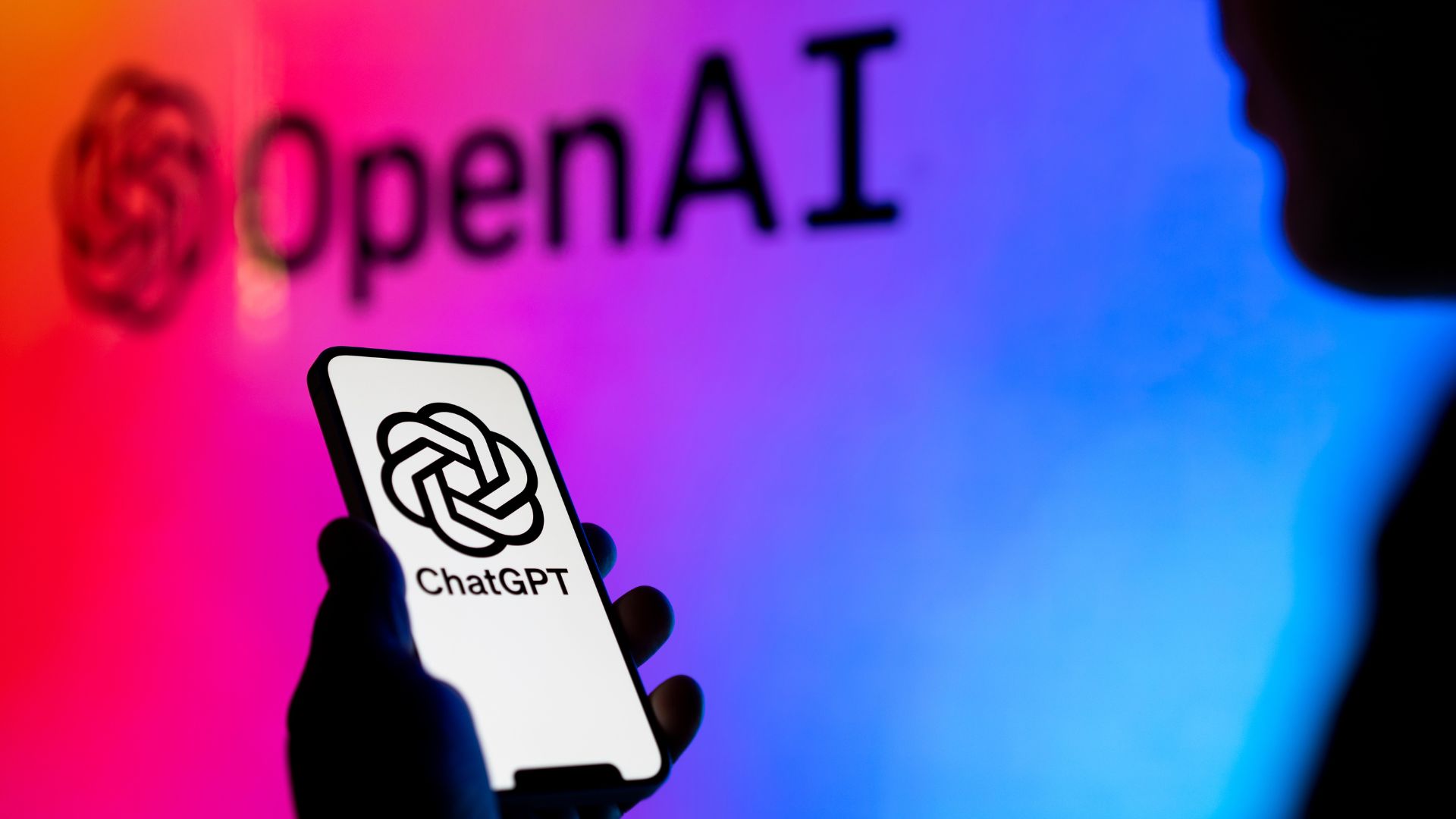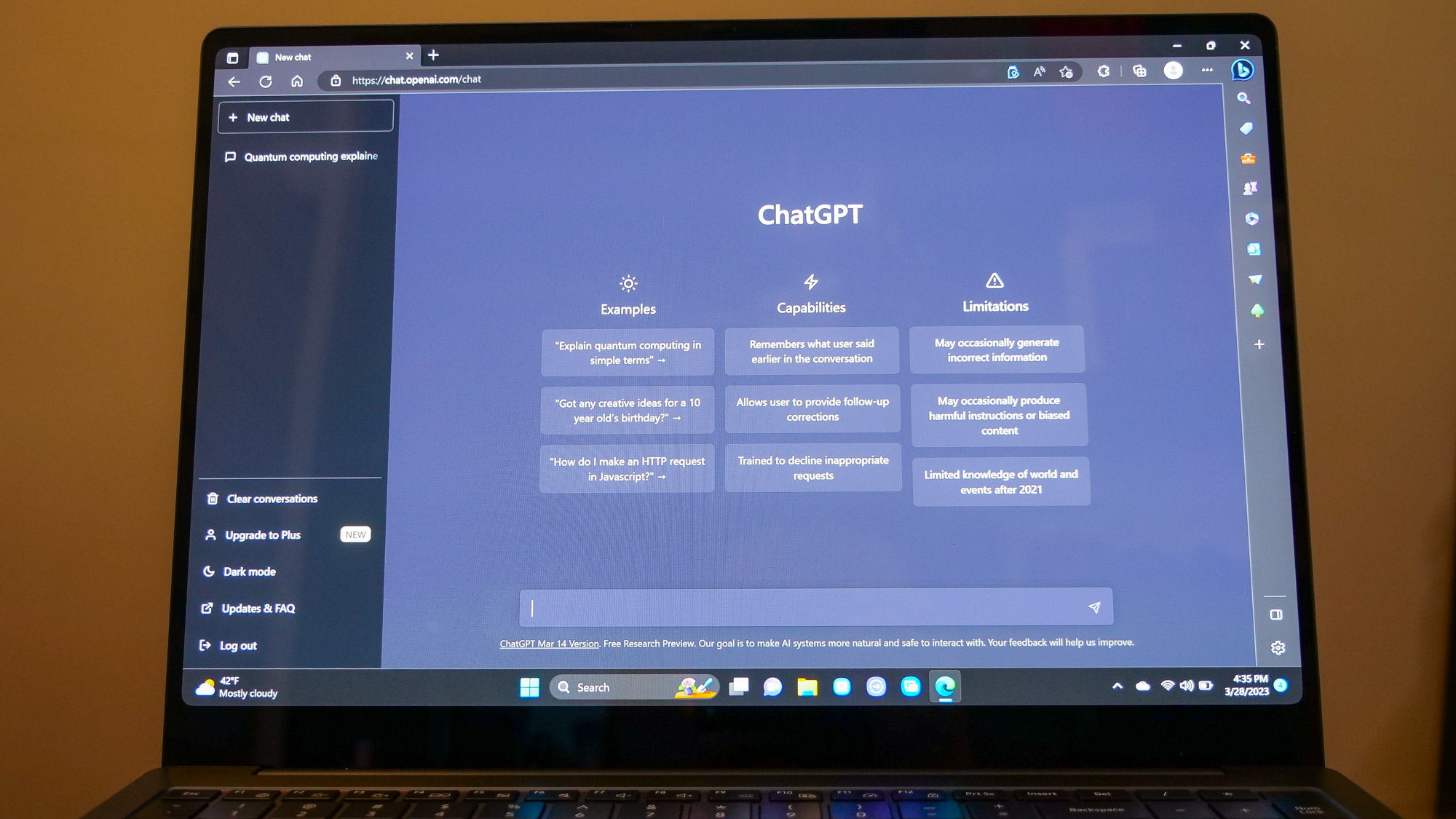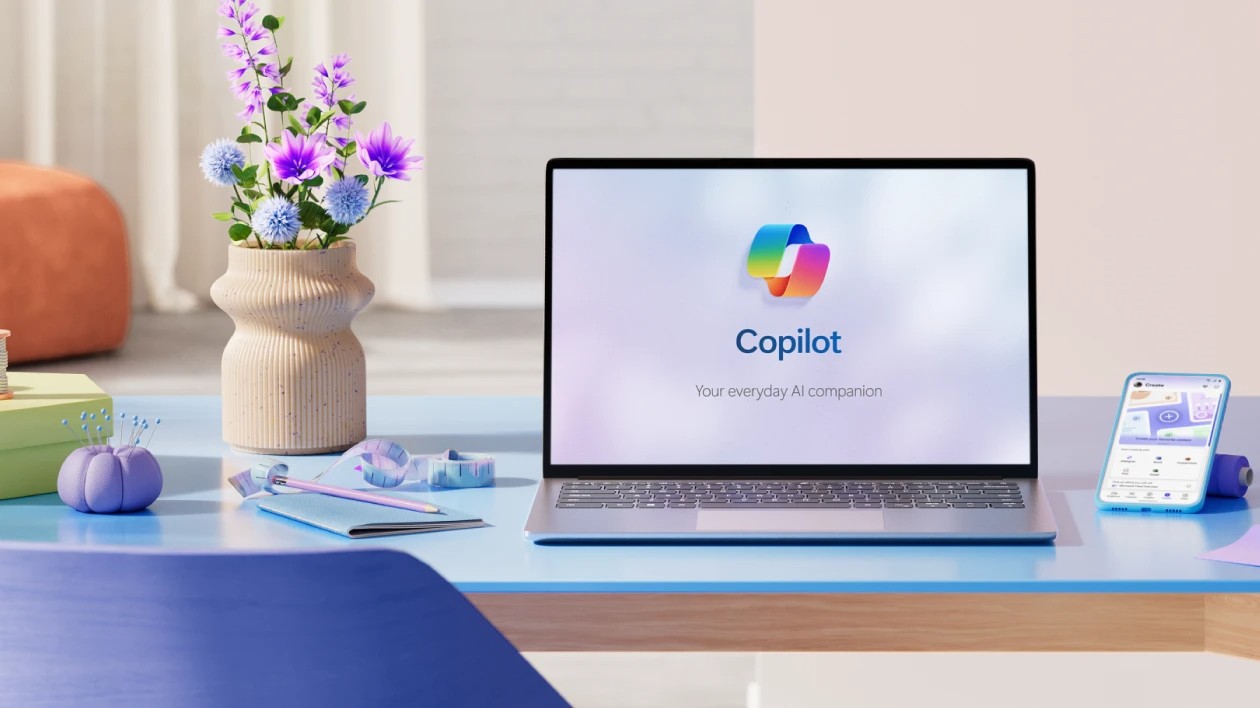Here's what GPT-5 could mean for the future of AI PCs
GPT-5 "Orion" is so powerful, it's strained the relationship between Microsoft and OpenAI

Generative AI is still nascent, but the features it enables might already be stuck in a rut.
That could change soon though as OpenAI is reportedly set to launch its latest major update, GPT-5 in December.
Allegedly codenamed "Orion," this new model will first be released to OpenAI's business partners instead of launching on the ChatGPT platform. According to a new report by The Verge, engineers at Microsoft are already preparing to incorporate it — a move that could have a drastic impact on Microsof'ts growing array of AI products.
What do we know about GPT-5?

It's worth noting that while there have been leaks about GPT-5, a spokesperson told The Verge that the company isn't planning to release a model code-named Orion.
The company “do[es] plan to release a lot of other great technology.” according to OpenAI Ceo Sam Altman who went as far as calling GPT-5 "fake news."
With that denial, the exact details on the rumored AI model have been tricky to pin down. However, an OpenAI executive has claimed that "Orion" aims to have 100 times more computation power than GPT-4.
'GPT Next’ to Achieve 3 OOMs Boost. Great insights from the #KDDISummit. Tadao Nagasaki of @OpenAI Japan unveiled plans for ‘GPT Next,’ promising an Orders of Magnitude (OOMs) leap. ⚡️ This AI model aims for 100x more computational volume than GPT-4, using similar resources but… pic.twitter.com/fMopHeW5wwSeptember 3, 2024
Sources have told The Verge that engineers at Microsoft are already preparing for GPT-5, and expect the model may be available as early as November. These initial Microsoft plans seem to focus on the Azure platform, which is Microsoft's cloud computing platform.
Stay in the know with Laptop Mag
Get our in-depth reviews, helpful tips, great deals, and the biggest news stories delivered to your inbox.
Other reports indicate that GPT-4o "Strawberry" and GPT-5 could cost $2,000 for users to run.
What will GPT-5 change for OpenAI?

The New York Times indicates that the cost of housing and running OpenAI's LLM has started to sour the relationship between OpenAI and Microsoft. The AI company has requested access to more of Microsoft's servers, particularly those housing the powerful Nvidia H100 GPUs.
OpenAI is attempting to renegotiate its contract with Microsoft, which cemented Microsoft Azure as the official cloud computing partner for OpenAI. This means that all of OpenAI's workloads run off of Azure servers. Microsoft agreed to an exception to the exclusivity contract in June, allowing OpenAI to host some workloads on Oracle servers.
Additionally, if OpenAI's GPT models ever achieve Artificial General Intelligence (AGI), the partnership between Microsoft and OpenAI will dissolve. This is clearly problematic for Microsoft, as OpenAI's GPT technology is at the heart of Microsoft's Copilot AI software platform.
Depending on these negotiations, OpenAI could gain the needed computing power to create AI with human-like intelligence. Alternatively, these negotiations could completely sour the relationship between the two companies.
What GPT-5 means for Copilot+ AI?

For all that we're a year into the AI PC life cycle, the artificial intelligence software side of the market is still struggling to find its footing. Few AI features and applications are truly unique, and only a handful are compelling enough to justify the AI PC label. Sure, AI PCs may have Neural Processing Units with some impressive performance, but outside of getting you better battery life and better hardware acceleration, there hasn't been a "Killer App" for the AI market.
Microsoft has gone all-in on the Copilot+ program which will open to AMD and Intel-powered systems in the coming weeks, but as far as the Copilot+ AI features, only Recall happens to be a truly unique feature. And even that is more of a security risk than something that would compel me to upgrade my laptop.
Depending on the capabilities of GPT-5 and the state of Microsoft's partnership with OpenAI, it's possible Microsoft and OpenAI can finally create the definitive AI feature for Copilot+ that will make people want to buy into the AI PC label.
If GPT-5 is 100 times more powerful than GPT-4, we could get AI that is far more reliable. This could mean anything from fewer hallucinations when asking your AI virtual assistant for information to AI-generated art with the correct number of limbs. Of course, the extra computational power of GPT-5 could also be used for things like solving complex mathematical problems to generating basic computer programs without human oversight.
Alternatively, the power demands of GPT-5 could see the end of Microsoft and OpenAI's partnership, leaving the Copilot+ program without even a basic chatbot. After all, Copilot itself runs off OpenAI's GPT models.
For now, we'll have to just wait and see, but one thing is for sure: OpenAI has something up its sleeve.
More from Laptop Mag
- How Qualcomm's feud with Arm could be a major blow to Copilot+ laptops
- Apple says a week-long marathon of Mac announcements is upon us
- Chromebooks vs. Windows laptops: What's the difference and what should you buy?

A former lab gremlin for Tom's Guide, Laptop Mag, Tom's Hardware, and TechRadar; Madeline has escaped the labs to join Laptop Mag as a Staff Writer. With over a decade of experience writing about tech and gaming, she may actually know a thing or two. Sometimes. When she isn't writing about the latest laptops and AI software, Madeline likes to throw herself into the ocean as a PADI scuba diving instructor and underwater photography enthusiast.










